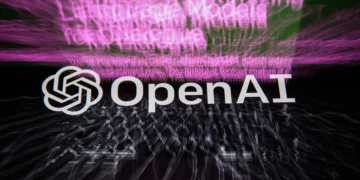
Blockchain technology emerges as a transformative catalyst in the contemporary digital landscape, owing to its decentralized structure, immutable characteristics, and heightened security protocols. Its potential spans across diverse industries, presenting entrepreneurs with a multitude of opportunities.
A notable advantage lies in its capacity to extend numerous investment possibilities to unbanked and underbanked communities. This facilitates crypto enthusiasts and entrepreneurs in exploring various avenues for trading USDT and other cryptocurrencies, all while benefiting from reduced costs and enhanced operational efficiency.
Through the democratization of financial services, individuals previously marginalized from the formal financial system now experience newfound empowerment, enabling them to actively engage in the global economy. Explore further to understand the ways in which entrepreneurs are reshaping industries through the innovative application of blockchain.
What is Blockchain?
Blockchain leverages a network of computers, commonly known as nodes, to securely record and authenticate transactions. It comprises a sequence of blocks distributed and upheld by the node network, establishing an incorruptible ledger of transactions. The term “blockchain” is derived from the arrangement of transactions within a chain of interconnected blocks.
The pivotal characteristics of blockchain include:
- Decentralization: The distribution of the blockchain among all network participants mitigates the risk of a single point of failure. This fosters transparency, placing decentralization at the forefront.
- Immutability: The application of cryptographic hash functions and the consensus mechanisms of the network render blocks highly resistant to tampering.
- Transparency: All participants in the network have visibility into the complete transaction history, fostering trust among users.
- Security: Utilizing consensus mechanisms like proof-of-work and proof-of-stake, blockchain ensures the validity of all transactions.
Although commonly associated with cryptocurrencies such as Bitcoin, Ethereum, Tether (USDT), and various other coins, blockchain’s utility extends beyond digital currencies. Its decentralized architecture holds the potential to revolutionize numerous industries, with applications ranging from supply chain management and healthcare to finance and identity verification.
The Transformative Influence of Decentralized Finance on Industries
Decentralized Finance (DeFi) emerges as a pivotal force in reshaping industries, challenging traditional banking structures through decentralized alternatives in key areas such as:
- Lending
- Borrowing
- Trading
The introduction of smart contracts has significantly heightened the speed and precision of transactions. These self-executing contracts allow for the direct inclusion of terms into the code, automating and streamlining diverse business processes.
By crafting contracts directly on the blockchain, entrepreneurs can seamlessly generate and execute:
- Legal agreements
- Real estate transactions
- Insurance claims
Furthermore, smart contracts facilitate the development of various financial instruments, eliminating the necessity for intermediaries in the process. This empowerment grants participants greater control over their assets and transactions, marking a substantial shift in the financial landscape.
Empowering Entrepreneurs through Transparency and Decentralization

Decentralization and transparency stand as primary drivers behind the widespread adoption of blockchain among entrepreneurs.
By facilitating peer-to-peer transactions, blockchain eradicates the necessity for intermediaries, a hallmark of traditional business models. The reliance on middlemen, such as banks or legal professionals, often incurs additional costs and lacks full transparency.
Consider the real estate industry where property transactions traditionally involve lawyers and real estate agents. Through the implementation of smart contracts, entrepreneurs can not only eliminate these intermediaries but also expedite processes, cut costs, and ensure transparency throughout transactions. This shift represents a significant advancement in the way business is conducted.
Revolutionizing Supply Chain Management with Blockchain
Blockchain introduces key enhancements, including transparency, efficiency, security, and immutability, which have the potential to reshape supply chain management.
Industries such as food and pharmaceuticals stand to gain significantly from the immutability aspect of blockchain. This feature enables stakeholders to trace products seamlessly from their origin to the final destination, ensuring compliance and safety throughout the supply chain.
The delivery of goods and services could undergo substantial transformation through the integration of smart contracts. These contracts play a pivotal role in mitigating the risk of fraudulent activities. By automating and self-executing contractual agreements, smart contracts not only streamline transactional efficiency but also establish an unalterable and transparent record of each step in the supply chain process. This advancement holds promise for reducing risks and enhancing trust within the supply chain ecosystem.
Enabling Global Market Access for Entrepreneurs through Blockchain
Blockchain technology opens doors for entrepreneurs to attain global access to financial services, particularly through the development of Decentralized Finance (DeFi).
Entrepreneurs can liberate themselves from traditional banking infrastructures by establishing decentralized banking solutions on blockchain platforms. This empowers them to engage in various banking activities, including:
1. **Savings**
2. **Loans**
3. **Transactions**
Simultaneously, financial transactions become more accessible and efficient. The creation of decentralized platforms enables users to globally send and receive funds with reduced fees and quicker transaction times, eliminating the need for intermediaries.
By presenting myriad investment opportunities, particularly to unbanked and underbanked populations, blockchain democratizes existing financial services, fostering a more inclusive global economy. In the era of technological innovation driven by this technology, entrepreneurs play a pivotal role in propelling the development of industries to unprecedented levels.
Through Decentralized Finance (DeFi) platforms, entrepreneurs establish decentralized banking, offering savings, loans, and transactions with unparalleled efficiency. This transformative environment sets the stage for fundamental changes across various sectors, ranging from supply chain management to banking and real estate. It marks a paradigm shift, ushering in a new era of innovative ideas where everyone can actively participate.

















































